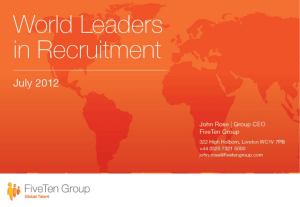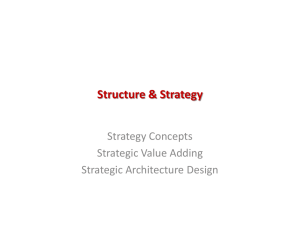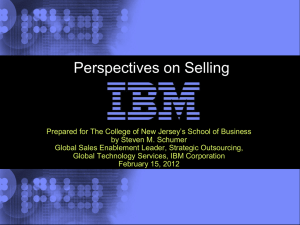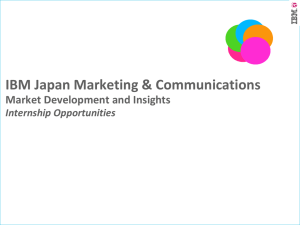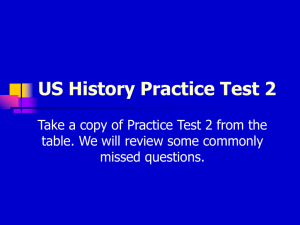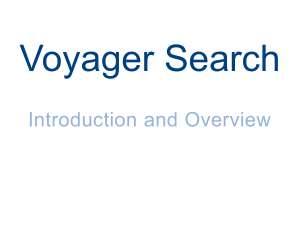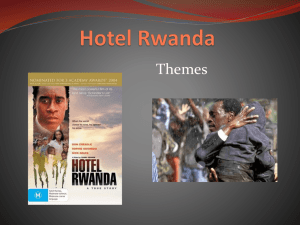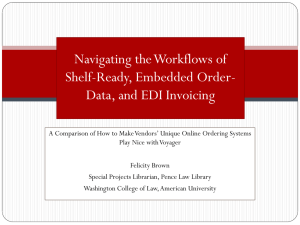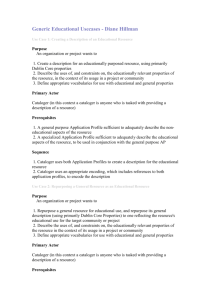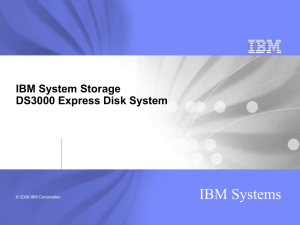Strawn.ALA 2012 automation
advertisement
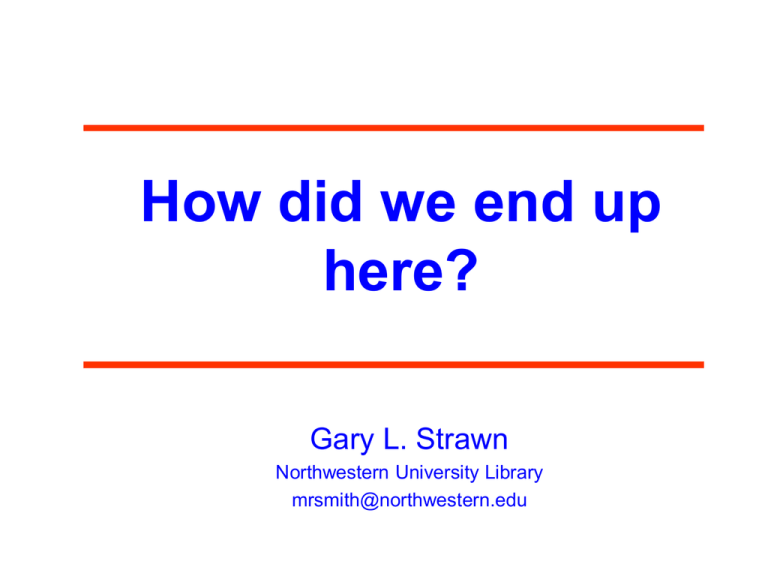
How did we end up here? Gary L. Strawn Northwestern University Library mrsmith@northwestern.edu Same thing, from a different direction Not: How do we go about this? Rather: How did this happen? Unfortunate biographical orientation 1970s: Programming as it once was Library school class: PL/I on punch cards, on mainframe First job: PL/I (on my own) Basics of programming (variables, structure) 1980s: Technological advances IBM PC with 2 5-1/4" floppy drives (MSDOS; program/data) Built-in BASIC (start computer with no DOS) IBM dual-floppy PC Courtesy Ruben de Rijcke Next library Mentioned programming in interview "We need to do something about acquisitions" Purchased a stand-alone PC, backup system (VHS tape!) New programming language: dBase III A year later: acquisitions system IBM PC as OCLC terminal: opportunity Save screen image as a file on floppy, then process First: transfer bib data into acquisitions system Second: convert authority records into authority and cross-reference cards Third: create new MARC authority records, print more cards Skills acquired Several programming languages Relational database structure Intimate understanding of MARC formats Processing of authority data Authority cards lead to next job Authorities librarian Collaborate with ISDO (NOTIS) Pulled into ISDO Eventually 1/2 and 1/2 (ISDO and authorities) ISDO: Sink or swim Learn IBM 360 assembler First program: Batch corrections Indexing improvements, etc. Post-ISDO Interact with NOTIS via terminal emulator; programming interface Windows programming Learn another language (VB) Authority record creation Cataloger's toolkit Post-NOTIS Voyager Learn: Oracle, SQL, PL/SQL Interact with Voyager via ODBC and (later) programming interface Spine labels, cataloger’s toolkit, loaders (including authority loader), etc., etc. Recent things Numerous XML flavors More languages: .NET family; Java Looking ahead Next system: new ground rules Probably web clients, not local clients Interfaces rather than direct access [?] New environments and languages Ruby, Hydra, etc. What are the themes? Change is constant, and accelerating Programming best done by people who know the material Grow in-house expertise What are the themes? Details can be learned Trade production for other valuable things Support staff in learning new stuff Formal training, self-instruction, consultants; etc. What are the themes? Best project: something that you’re interested in doing anyway Questions?
